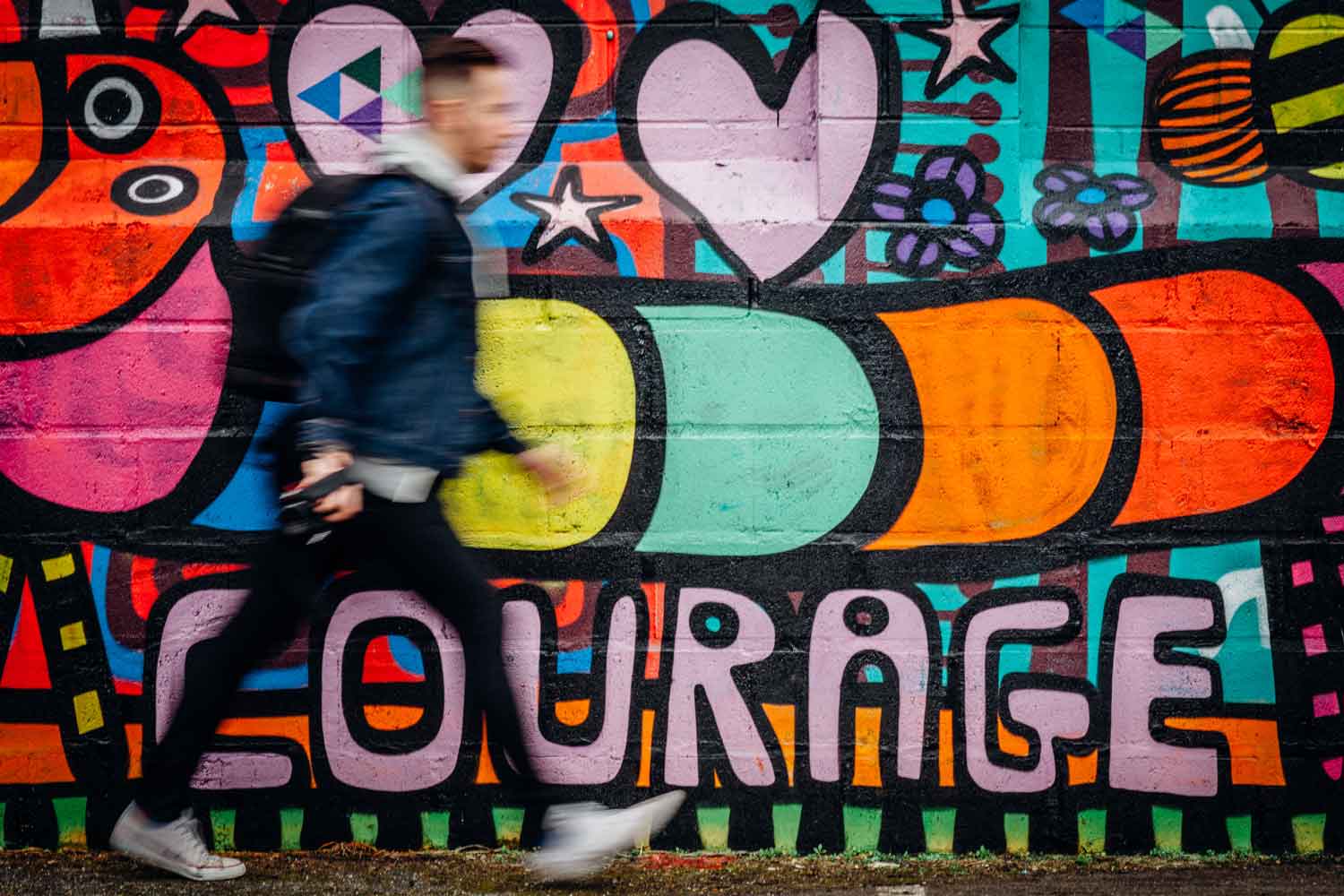Even though we know fear does not serve us, we often allow it to stop or limit us. We might not even be aware of the ways it drives us and makes us smaller than we are. Though we might think we can control life, there is little we can actually control. If we are honest, we can say that the human experience involves some form of uncertainty and disappointment every single day. Death is the only thing we actually know with certainty will happen to us in this life.
We suffer when we resist our innate vulnerability and view it as a weakness, rather than embrace it with acceptance. We try to build scaffolding and protection in the form of future planning, goal-setting, and gated communities to cope with the innate uncertainty with which we live. We have myriad ways to guard against, defend, escape, protect ourselves, and turn away from the vulnerability that is actually the key to our authentic power and our shared compassion for one another.
Each time we turn away from vulnerability, we give away our power to a story that we are not adequate to meet our life experience. The surrounding environment we create for ourselves—with its walls, barricades, and defenses—reflects our fears and therefore reinforces states of fear. We live in a vulnerable state, yet by avoiding this reality we are never put in touch with the resilience of our deeper being.
Meditation teaches us how to relate to fear in an entirely different way. It gives us the choice to see fear (False Evidence Appearing Real) clearly and to cultivate the equanimity and courage that is our birthright.
When we first come to meditation, even the groundlessness of awareness can seem frightening. We are frightened by the possibility of letting go and expanding our experience of self. Meditation can at first seem like sitting outside in the dark at night, but gradually we become curious about the darkness around us. We learn to pay subtle attention as we sit in the dark, and to care for ourselves. By continuing to sit with groundlessness, something within us changes, and the world around us changes too. We begin to feel connected to the darkness, and rather than being fearful, we turn to greet fear with open curiosity.
I have been struck by the degree to which fear’s volume has been turned up in my community and in our world. Whether it is personal fear of “How can I make it in a challenging economy?” or “What will become of what appears to be the rise of fascism in both the US and Europe?”, it is my hope that we will see the invitation being offered, the invitation to transform our relationship with fear. Questions that I find helpful to ask are:
- What if we did not take fear – or the sensations and thoughts associated with fear – personally?
- What does fear actually serve?
- How can we remember to pause and turn within in the face of fear, in order to access stillness and clarity?
- How can we cultivate authentic courage? And how can we both welcome and embrace fear while choosing courageous action?
I offer this teaching in Lovingkindness,
Deborah Eden Tull

